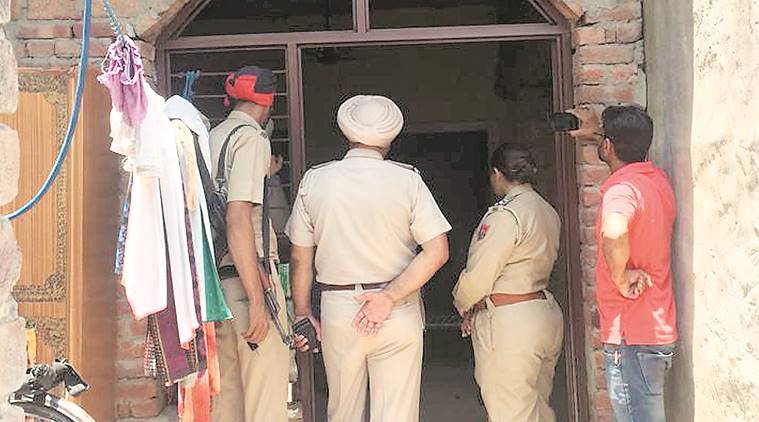
A few days after two suspected militants died in a blast while hiding explosives in Taran Tarn, Punjab Police Sunday claimed to have busted a terrorist module of the revived Khalistan Zindabad Force (KZF), backed allegedly by a Pakistan and Germany based terror group that delivered weapons using a drone from Pakistan to Taran Tarn by violating the Indian air space three to four weeks ago.
According to a communique by Chief Minister Amarinder Singh’s office, the terror group was conspiring to unleash a series of terrorist strikes in Punjab and adjoining states. Police seized a huge cache of arms, including 5 AK-47 rifles, pistols, satellite phones and hand grenades during the operation.
Four members of the terrorist module were arrested from the outskirts of village Chohla Sahib in Tarn Taran on Sunday. They were using a white Maruti Swift car (PB 65 X 8042).
CM Amarinder Singh decided to hand over further investigations in the case to NIA to ensure that the entire conspiracy is “fully and expeditiously unraveled” as the module is suspected to have international links. A government functionary said this is for the first time that the cache of arms was delivered through drones instead of infiltration across the border.
“Initial investigations have revealed the use of drones to deliver terrorists weapons and communication hardware across the border. In view of this, the Chief Minister has also urged the central government to direct the Indian Air Force (IAF) and Border Security Force (BSF) to launch necessary counter-measures to check any further threat from drones to the border state of Punjab,” the government statement said.
Punjab DGP Dinkar Gupta said, “The weapons were suspected to have been delivered recently across the Indo-Pak border from Pakistan over drones launched by the Pak establishment, the Pak ISI, and the state-sponsored Jihadi and pro-Khalistani terrorist outfits working under its command.”
He said the large-scale infiltration appeared to have been aimed at scaling terrorism and militancy in J&K, Punjab and the Indian hinterland, in the wake of the recent developments in the Valley.
The DGP disclosed that police launched the operation after gathering inputs from different sources that revealed that activists of the banned KZF planned to carry out multiple terrorist strikes in J&K, Punjab and other states.
The operation was carried out by Ketan Baliram Patil, AIG, Counter Intelligence, Amritsar along with various Punjab Police teams based in Chandigarh.
DGP Gupta said the module was backed by Pakistan-based chief of KZF, Ranjeet Singh alias Neeta, and his Germany-based associate, Gurmeet Singh alias Bagga alias Doctor, who had re-organised their terrorist group to revive terrorism in Punjab. With the help of local sleeper cells, they had spotted, radicalised and recruited local members, besides arranging funds and sophisticated weapons from across the border for operationalising the local module members.
Those arrested have been identified as Balwant Singh alias Baba alias Nihang, Akashdeep Singh alias Akash Randhawa, Harbhajan Singh and Balbir Singh. Both Akashdeep and Balwant Singh have a criminal past with multiple criminal cases against them, the police claimed.
Preliminary investigations revealed that Maan Singh, currently lodged inside Amritsar jail in an Arms Act and UAPA case, at the behest of his handler Gurmeet Singh alias Bagga, had recruited Akashdeep Singh, when they were lodged together at Amritsar jail.
Recipient of the arms consignment, Balwant Singh is a member of Babbar Khalsa International (BKI) terrorist organisation, and was earlier arrested in a UAPA and Arms Act case lodged at Mukandpur police station (SBS Nagar), and is presently on bail and facing trial in that case.
Police said that five AK-47 rifles (along with 16 magazines and 472 rounds of ammunition), four Chinese made .30 bore pistols (along with 8 magazines and 72 rounds of ammunition), nine hand grenades, five Thuraya satellite phones along with their ancillary equipment, two mobile phones, two wireless sets and Rs 10 lakh Fake Indian Currency Notes (FICN) have been recovered from them.